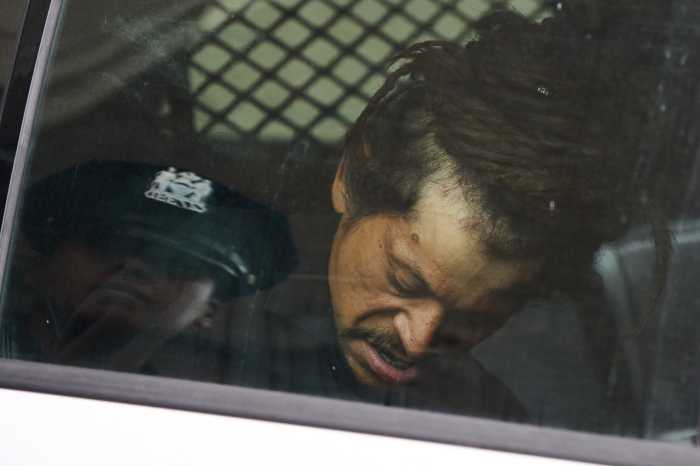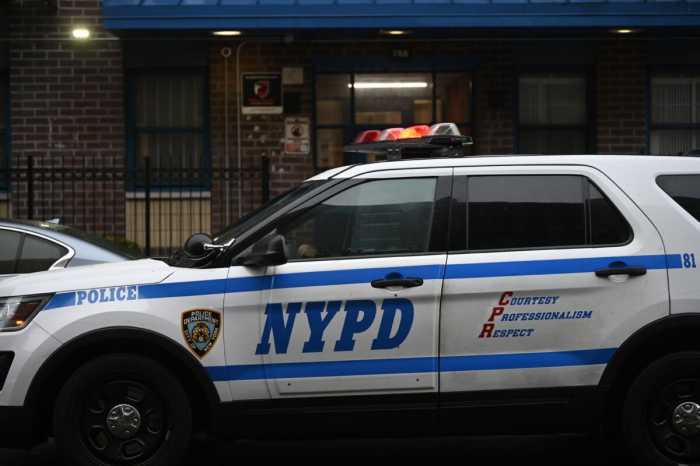
New York did not become the 12th state to legalize the recreational use of marijuana this year.
A last-ditch effort to win enough support before the end of the legislative session failed, the bill’s sponsor said.
For more than a year, city and state officials had taken steps toward possible legalization, with public listening sessions and government reports leading to legislative efforts to produce a bill.
Enthusiasm waned after the legislation was dropped from the budget in March, but amendments were later made in a last-minute push to get it through.
Scroll down to learn more.
Latest on state efforts to legalize marijuana
A marijuana legalization bill died after amendments and frantic lobbying late into Tuesday failed to move enough Democrats in the Senate to support the landmark bill, but the legislation’s sponsor said the fight is not over.
“This is not the end of the road, it is only a delay,” said Sen. Liz Krueger (D-Manhattan) in a statement. “Unfortunately, the delay means countless more New Yorkers will have their lives upended by unnecessary and racially disparate enforcement before we inevitably legalize.”
“I have no doubt that prohibition is an outdated and irrational policy, and its days are numbered,” Krueger said.
The legislature instead passed a backup bill Thursday that further decriminalizes marijuana. The law, once Gov. Andrew M. Cuomo signs it, will reduce the charge for possession, expunge many past possession convictions and add smoking of marijuana to the restrictions on smoking in public.
Cuomo expressed support for the bill before it was passed.
“Communities of color have been disproportionately impacted by laws governing marijuana for far too long and it has to end,” he said in a statement Wednesday. “This legislative proposal is not new. I first proposed this decriminalization measure in 2013, and again in this year’s budget. The time to act is now.”
The governor also took a swipe at state lawmakers for trying to pass marijuana legalization as a stand-alone bill.
“I said from the beginning of this session that I believed marijuana legalization had the best chance of being passed in this year’s budget,” he said. “Today, the Senate confirmed that it does not have the votes to move forward with legalization.”
Cuomo had declared marijuana legalization to be a priority when he delivered his budget proposal in January, but it was dropped in March due to an impasse with legislative leaders over provisions on how tax revenue from the cannabis industry would benefit communities disproportionately affected by the current laws.
Legislators on May 24 filed an amendment to the bill that would have set aside specific amounts of tax revenue from regulating the drug to benefit communities disproportionately targeted by drug enforcement, but the amended bill still didn’t get enough support.
The amendment would have increased the proposed taxes on marijuana; lowered the amount of pot an individual can possess; expunged low-level marijuana convictions; and allowed the governor to appoint someone to oversee an Office of Cannabis Management, The Buffalo News reported. Additionally, the revised bill would have extended priority for licenses to the family members of people who were convicted of a marijuana-related crime.
Cuomo’s decision to support marijuana legalization followed a series of public hearings in 2018 that endorsed decriminalization efforts after the state Department of Health issued a report advocating a change in law.
The six-month Health Department study, commissioned by Cuomo, suggested that the benefits of legal marijuana outweigh the risks. The department also determined that legalizing the drug for New Yorkers older than 21 would not significantly raise smoking rates and could help reduce racial disparities in police enforcement.
Medical marijuana remains legal in New York State for patients who are certified by medical practitioners as having serious conditions, under the Compassionate Care Act. The conditions include cancer, AIDS and severe chronic pain, among other ailments.
Public support
The majority of voters in New York support legalizing marijuana 55-40 percent, according to a Siena Research Institute poll released on June 10. The issue is largely split along party lines, with 61 percent of Democrats in favor and 55 percent of Republicans against legalization, the poll found.
In March, an NBC 4 New York/Marist poll produced similar results, with 57 percent of respondents in support of marijuana legalization and 38 percent opposing it.
A poll released by Quinnipiac University in January showed that not only do a majority of New Yorkers back legalizing marijuana, they also support erasing past criminal convictions for possession.
“There are some concerns being expressed, for example, about potential increase in car accidents, but overall New Yorkers say they would be in favor of legalizing marijuana and also be OK with it sold in their communities,” Quinnipiac poll analyst Mary Snow said.
Does Mayor Bill de Blasio support legalization?
De Blasio, who had not previously endorsed full recreational legalization, reversed course with the release in December of a 71-page report from the Mayor’s Task Force on Cannabis Legalization.
“We have a once-in-a-generation opportunity to get a historic issue right for future New Yorkers,” de Blasio said in a letter attached to the report. “Legal cannabis is coming to New York State.”
Decriminalization efforts in the city
The City Council, NYPD and the mayor’s office have taken steps to decriminalize the drug.
Most people caught smoking marijuana in public now receive summonses instead of being arrested, and the district attorneys of Brooklyn and Manhattan no longer prosecute a majority of low-level pot offenses.
The City Council, meanwhile, passed a bill that prohibits employers from requiring a prospective worker to submit testing for the presence of the active ingredient in marijuana, known as tetrahydrocannabinol or THC. Another bill that was passed bans the city from requiring marijuana testing for people who are on probation.
How would tax revenue be used?
Taxes from legal sales of marijuana had been proposed to be reinvested into job training, economic empowerment, youth development programming, public schools, drug treatment programs and public education campaigns.
With Newsday




























